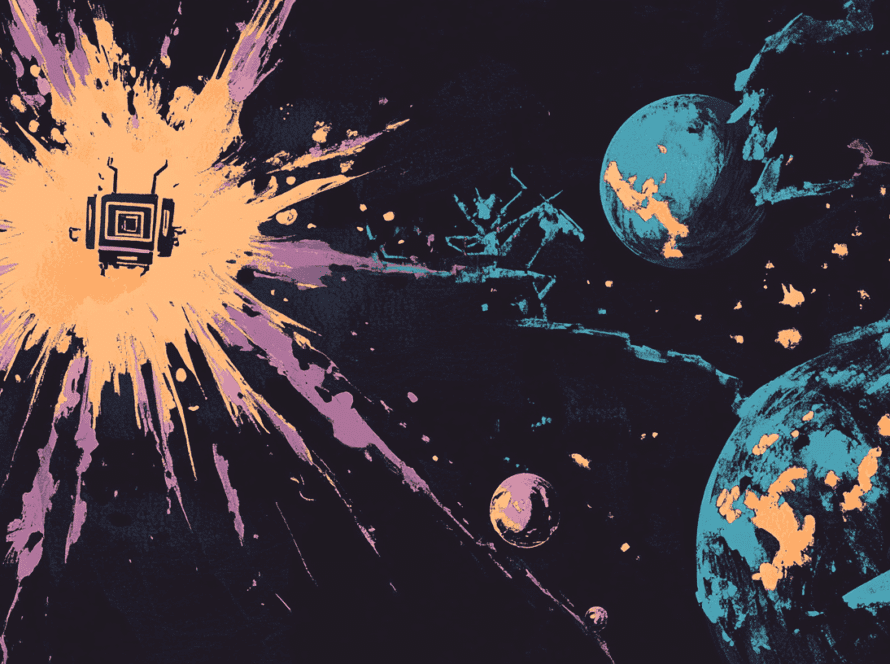Synthetic Intelligence is quickly permeating our lives, and whereas it has introduced incredible developments, it additionally has some peculiarities.
One such peculiarity is AI hallucinations.
No, your gadgets aren’t beginning to have dream-like visions or hear phantom sounds, however typically, AI know-how will produce an output that appears ‘pulled from skinny air’.
Confused? You are not alone.
Let’s discover what AI Hallucinations imply, the challenges they pose, and how one can keep away from them.
The time period AI hallucinations emerged round 2022 with the deployment of huge language fashions like ChatGPT. Customers reported that these chatbots appeared to be sneakily embedding plausible-sounding however false information into their content material.
This unsettling undesired high quality got here to be often known as hallucination on account of a faint resemblance it bore to human hallucinations, though the phenomena are fairly distinct.
So, What are AI Hallucinations?
For people, hallucinations usually contain false perceptions. AI hallucinations, however, are involved with unjustified responses or beliefs.
Basically, it’s when an AI confidently spews out a response that isn’t backed up by the information it was skilled on.
If you happen to requested a hallucinating chatbot for a monetary report for Tesla, it would randomly insist that Tesla’s income was $13.6 billion, although that isn’t the case. These AI hallucinations may cause some critical misinformation and confusion. And I see it occur tremendous regularly with ChatGPT
Why Do AI Hallucinations Occur?
AI performs its duties by recognizing patterns in information. Predicts future data based mostly on the information it has ‘seen’ or been ‘skilled’ on.
Hallucinations can occur on account of a number of causes: Inadequate coaching information, encoding and decoding errors, or biases in the way in which the mannequin encodes or recollects data.
For chatbots like ChatGPT, which generate content material by producing every subsequent phrase based mostly on prior phrases (together with those it generated earlier in the identical dialog), there’s a cascading impact of doable hallucinations because the generated response lengthens.
Whereas most AI hallucinations are comparatively innocent and actually considerably amusing, some circumstances can bend extra in direction of the problematic facet of the spectrum.
In November 2022, Fb’s Galactica produced a whole tutorial paper below the pretense that it was quoting a non-existent supply. The generated content material erroneously cited a fabricated paper by an actual creator within the related subject!
Equally, OpenAI’s ChatGPT, upon request, created a whole report on Tesla’s monetary quarter – however with utterly invented monetary figures.
And these are simply a few examples of AI hallucinations. As ChatGPT continues to select up mainstream friction, it is solely a matter of time till we see the next frequency of those.
How Can You Keep away from AI Hallucinations?
AI hallucinations may be combated by rigorously engineered prompts and making use of purposes like Zapier which has developed guides to assist customers keep away from AI hallucinations. Listed here are a number of methods based mostly on their ideas you may discover useful:
1. Nice-Tune & Contextualize with Excessive-High quality Information
Significance of Information: It’s usually mentioned that an AI is barely pretty much as good as the information it is skilled on. By fine-tuning ChatGPT or comparable fashions with high-quality, numerous, and correct datasets, the situations of hallucinations may be minimized. Clearly you possibly can’t re-train the mannequin when you aren’t OpenAI, however you possibly can positive tune your enter or requested output when asking direct questions.
Implementation: Frequently updating coaching information is probably the most optimum method of lowering hallucinations. Having human reviewers evaluating and correcting the mannequin’s responses throughout coaching additional enhance reliability. If you do not have entry to fine-tune the mannequin (the case of ChatGPT) you possibly can ask questions with easy “sure” or “no” solutions to restrict hallucinations. I’ve additionally discovered pasting context of what you are asking permits ChatGPT to reply questions lots higher
2. Present Person Suggestions
Collective Enchancment: Go forward and inform ChatGPT it was mistaken, or direct it in sure methods to clarify its misguidance. ChatGPT cannot retrain itself based mostly on you saying one thing, however flagging a response is an effective way of letting the corporate know this result’s mistaken, and must be one thing else.
3. Assign a Particular Function to the AI
Earlier than you start to ask questions, contextualize what the AI is meant to be. If you happen to fill within the sneakers of the dialog, the stroll turns into lots simpler. Whereas this does not at all times translate to much less hallucinations, I’ve seen you may get much less overconfident solutions. Make certain to double examine all of the info & explanations you get although.
4. Alter the Temperature
When you cannot change the temperature instantly inside ChatGPT, you possibly can modify it on the OpenAI Playground. The temperature is what provides the mannequin roughly variability. The extra variable, the extra seemingly the mannequin is to get off observe and begin saying actually something. Preserving the mannequin at an affordable temperature will hold it in-tune with no matter dialog is at hand.
5. Do Your Personal Analysis!
As foolish because it sounds, fact-checking the outcomes you get from an AI mannequin is the one surefire method of understanding the consequence you get from one in all these instruments. This does not actually cut back hallucinations, however it will possibly assist differentiate reality from fiction.
AI Is Not Excellent
Whereas these strategies can considerably assist to curtail AI hallucinations, it is vital to do not forget that AI shouldn’t be foolproof!
Sure, it will possibly crunch monumental quantities of information and supply insightful interpretations inside seconds. Nonetheless, like several know-how, it doesn’t possess consciousness or the power to distinguish between what’s true and what’s not viscerally, as people do.
AI is a device, depending on the standard and reliability of the information it has been skilled on, and on the way in which we use it. And whereas AI has brought about a revolution in know-how, it’s vital to bear in mind and cautious of those AI hallucinations.
I do have a whole lot of confidence that issues will get higher as these fashions are retrained & up to date, however we’ll in all probability at all times must take care of this faux confidence spewed when a device actually would not know what it is speaking about. Skepticism is vital. Let’s not let our guard down & hold utilizing our instinct.


